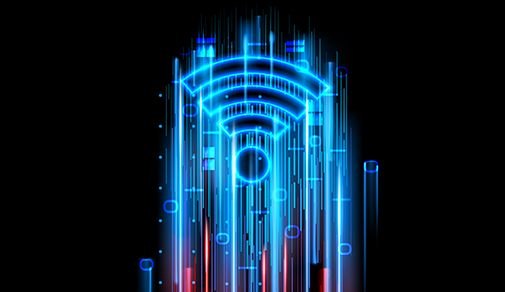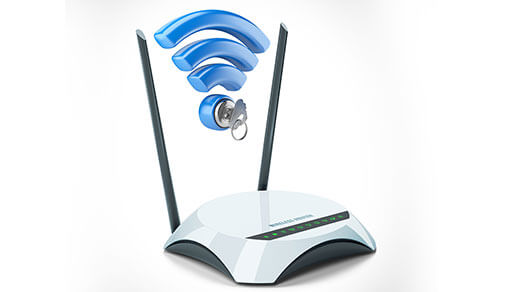Public vs. Private WiFi Hotspots: Understanding the Differences
Monday, Aug 12, 2024 · 20 mins
679

WiFi hotspots have become crucial for portable web access in our consistently connected environment. Whether you're working from home or a distance from a cafe, it's essential to know the distinctions among public and private WiFi networks. This instructional exercise investigates the fundamental distinctions, advantages, and security issues among public and private WiFi hotspots with the goal that you might make an educated decision about how much internet you use.
What are Public and Private WiFi Hotspots?
Public WiFi hotspots are networks accessible in public spaces such as shopping malls, airports, libraries, and cafés. These hotspots frequently offer free internet access and are generally available to anybody nearby.
Private WiFi hotspots are networks set up in homes, workplaces, or private areas. Admittance to these networks is typically limited by a secret key, guaranteeing that main approved clients can interface.
These WLANs can be used for private use, like in the home, or to make short-range, public organizations known as "hotspots," which can be found openly in places like air terminal parlors, cafés, or neighborhoods.
Advantages of Public and Private WiFi Hotspots
Public WiFi Hotspots
They can be unstable, making them defenseless against programmers and cybercriminals. Nonetheless, utilizing encryption can assist with keeping your web-based activity protected and hidden.
1. Availability: When you're not at home or work, you can, in any case, associate with the web, thanks to the numerous public WiFi hotspots that are strategically placed.
2. Savvy: You can set aside cash and portable information utilization by utilizing public WiFi hotspots, which commonly give free or economical web access.
3. Comfort: Ideal for quick web-based errands like virtual entertainment surfing and email checking while in a hurry.
Private WiFi Hotspots
They can offer quicker download and transfer speeds, more reliable network execution, and preferable security over open hotspots. Confidential associations can likewise be free for data transfer, which can diminish the expense of moving a lot of information.
1. Speed and Dependability: Contrasted with public hotspots, confidential WiFi networks normally give quicker and more trustworthy associations.
2. Control: You can conclude who approaches your network, which makes for a more solid and safe association.
3. Security: To decrease the opportunity of cyberattacks, more grounded passwords and encryption methods can be established.
Security Risks Associated with Public WiFi Hotspots
Utilizing public WiFi hotspots can open you to different security chances:
1. Unstable Networks: Due to an absence of solid security conventions, public hotspots are powerless against cyberattacks.
2. Data Interception: Data sent across unprotected organizations can be promptly blocked by programmers, which builds the gamble of fraud and information breaks.
3. Spread of Malware: Public WiFi networks might act as safe houses for malware, which can imperil your information by contaminating your gadget.
4. Bundle sniffing: Snooping permits programmers to catch decoded information parcels communicated over the organization, possibly compromising delicate information like login qualifications or crypto wallet data.
Security Benefits of Private WiFi Hotspots
Private WiFi networks offer a few security benefits over open public hotspots:
1. Encryption: Secure information transmission over confidential organizations is guaranteed by the utilization of powerful encryption conventions.
2. Access Control: Confidential areas of interest reduce the risk of unapproved access and potential digital perils by restricting admittance to approved clients.
3. Regular Monitoring: To guarantee continuous defense against emerging threats, you can update security settings on private networks and check them regularly.
Public vs. Private WiFi Hotspots
When comparing public WiFi vs private WiFi, several key differences emerge:
1. Availability: While private WiFi is restricted to specific spaces like homes or workplaces, public WiFi is generally accessible.
2. Security: While private WiFi gives further developed security shields, public WiFi presents greater security gambles due to unstable networks and conceivable digital dangers.
3. Control: More control over who can access the network with private WiFi ensures a more dependable and secure association.
Public WiFi Security Risks
Staying safe on public WiFi involves being aware of the public WiFi security risks and taking precautions. Key concerns include:
1. Unencrypted Connections: Since numerous public WiFi networks need encryption, programmers can undoubtedly catch information.
2. Counterfeit Hotspots: Cybercriminals can make bogus hotspots to deceive individuals and acquire their information.
3. Inadequate Authentication: Public networks frequently lack strong authentication, making it possible for anybody nearby to connect and possibly compromise the network.
Staying Safe on Public WiFi
To relieve public WiFi security concerns, follow these tips:
1. Utilize a virtual private network (VPN): A VPN encodes your web association to add protection.
2. Avoid Delicate Exchanges: Don't use public WiFi to access banking or other delicate records.
3. Keep up with Software Updates: Ensure the latest security updates and fixes are applied to your gadgets.
Conclusion
It's critical to comprehend the distinctions between public and private WiFi hotspots to make wise choices regarding your internet usage. Although public WiFi can save money and be more convenient, serious security dangers are involved. Conversely, private WiFi offers higher security, control, and dependability levels at unlimited WiFi hotspot plans. Through the identification of these variations and adherence to recommended protocols for maintaining security when using public WiFi, you can reap the advantages of connectedness without sacrificing your safety.
Be Part Of Our Network
All Categories
- BUSINESS INTERNET
- Router
- Internet Security
- Wi-Fi Connection
- Wi-Fi Network
- Internet Broadband
- smartfiber
- Internet Speed
- TV Streaming
- Wifi Connection
- BEST BROADBAND PLANS
- BROADBAND PLANS | 5GHz
- 2.4GHz
- 5GHz frequency
- 5GHz WiFi frequency
- 2.4GHz frequency
- LDRs
- LONG DISTANCE RELATIONSHIP
- ACT Fibernet
- wifi as a service
RECENT ARTICLES

Find the perfect internet plan for you!

















